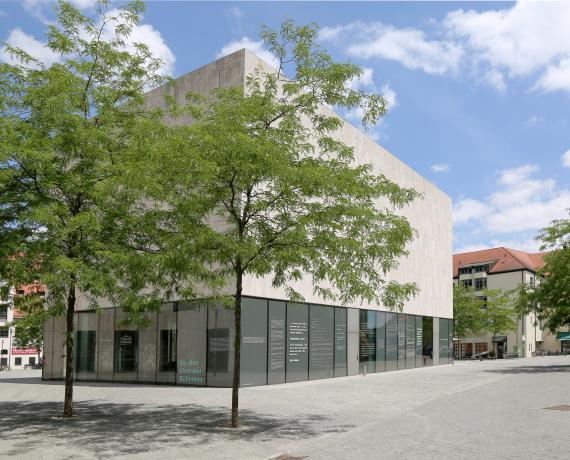St.-Jakobs-Platz 16
80331 München
Germany
The Jewish Museum Munich, an institution of the state capital München, is dedicated to the diversity of Jewish history and culture. It was opened in 2007 and is part of the ensemble of buildings on St.-Jakobs-Platz, which also includes the Ohel-Jakob Synagogue and the Jewish Community Center. On three exhibition areas, the museum deals with Jewish life in Munich in the past and today as well as the topics of migration and participation. In addition to the permanent exhibition „Voices_Places_Times“, temporary exhibitions are shown regularly. Educational formats and events invite visitors to engage in dialog. The museum building, designed by the architects Wandel, Hoefer, Lorch, also houses the Literaturhandlung and a museum café.
The first efforts to establish a Jewish museum in Munich date back to the late 1920s. In 1930, an association for Jewish museums in Bavaria was founded, chaired by the Munich rabbi Dr. Leo Baerwald. When the National Socialists came to power, the plans to found the museum had to be abandoned. In the post-war period, individual protagonists campaigned for the establishment of a Jewish museum in Munich, including the former president of the Jewish Community, Hans Lamm. It was not until 1989 that a private Jewish museum was opened at Maximilianstrasse 36 thanks to the initiative of collector Richard Grimm. In 1998, with the support of the City of Munich and the President of the Jewish Community, Dr. h. c. Charlotte Knobloch, the museum moved to the premises of the Jewish Community in Reichenbachstrasse. Until 2006, the Münchner Stadtmuseum and the Stadtarchiv München organized a total of 12 temporary exhibitions there.

Add new comment